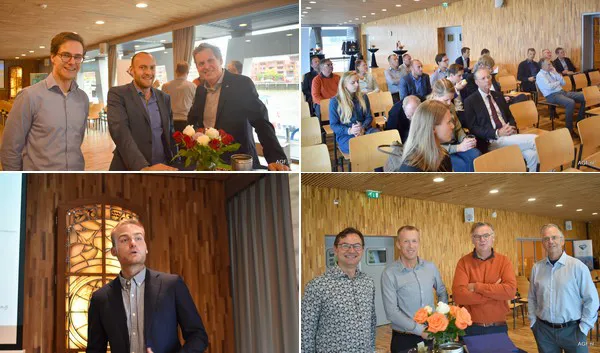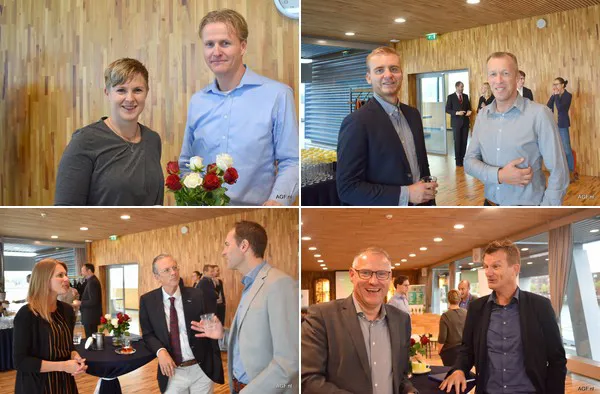On October 3 the seminar Rotterdam Food Port took place. The organisation was a collaboration between the municipality of Rotterdam and SmartPort with the goal of connecting science and practice on the topic of logistics in the agrifood sector. The seminar is part of the Rotterdam Food Cluster.
Click here for the photo report

Reefers on the train
Bob Castelein, PhD candidate at the Erasmus University Rotterdam, kicked off the seminar with an explanation of the forms of modality. When it comes to food products the transport in the sector still leans towards to road. This is despite there being solutions to this and it being desirable for freight transport to move to the rail in the future. The main conclusion of the the research; a 'mental shift' will have to take place before the modal shift can become a success in the sector. The sector is still too suspicious towards the railway because they fear it can't meet the demands.
An example from practice was presented by Fred Lessing of Euro Pool System. He explained the CoolRail project, which was set up in collaboration with other parties. This train connection between Valencia and Rotterdam is intended to push down the number of trucks on the road and could save between 70-90% CO2 emissions. The ambition is big, in the future it is hoped that the train will run 20 times a week rather than its current 3. A few bottlenecks on the route, like a different track width in Spain are to be resolved in the future and will shorten the link.

Consolidation
Yun Fan, PhD candidate at the Wageningen University & Research added to the research on consolidating container transports from the port to the hinterlands. This is necessary to prevent congestion in the future. Better use needs to be made of containers and transport methods. Prior to this three models were set up: only using trucks, container consolidation and combined freight/container consolidation. The latter has the preference of the fruit and vegetable sector although the transport does have be made greener. Another point of interest is that containers with fresh fruit and vegetables should be given priority over other goods.
Digital platforms
Freek Brillemand talks about the state of affairs in the project Smart Logistics, a digital logistics platform for transport. The project is an initiative by Rotterdam Food Cluster in which there was collaboration between three large food companies from the region.
On behalf of the ECT, Willemien Akerboom spoke about a new digital platform. This portal, previously Fresh Forward, now My Terminal, gives customers insights into their data, the status of their container and whether it has been unloaded in the port yet. The platform is linked to the transport system itself. This platform allows for waiting times at the terminals to be pushed down.
Rotterdam Food Hub
Anne Saris of the port of Rotterdam spoke about the new area development of the Rotterdam Food Hub in the port where there is space for food companies to develop. The location offers all supporting facilities with deep sea quays, reefer facilities and good hinterland connections. The Rotterdam Food Hub is located on the Tenneseeport. Finally, research was presented by Matias Apparcel on which arguments play a role in choosing a particular port as a destination for both import and export streams of fresh produce.
Click here for the photo report
For more information:
Gemeente Rotterdam
Adriaan van der Giessen 
Projectmanager Food
Wilhelminakade 179
3002 AN Rotterdam
Tel: +31 (0)6 146 443 84
a.vandergiessen@rotterdam.nl
www.rotterdamfoodcluster.com
